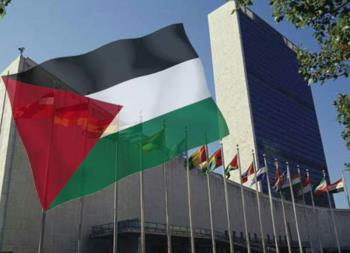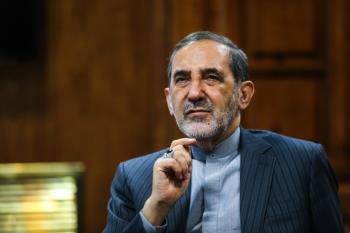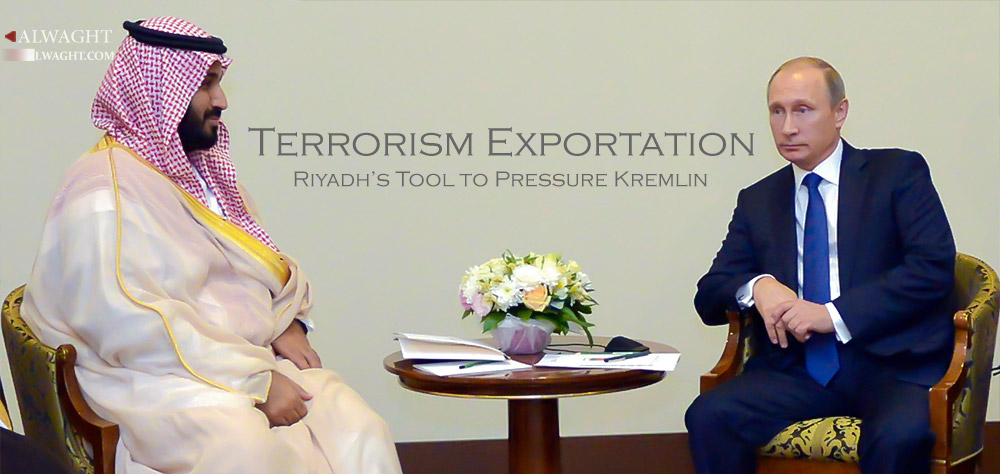Alwaght- The Saudi Arabian relations with Russia over the past years have been described as complex, multilayered, and shifty. In these relations on the one hand there are factors that can pave the way for boost of the two countries' ties and on the other hand there are others that can function as hurdles to any relations improvement.
At the present time, Moscow and Riyadh have many discords over the political issues. In many cases, actually, the Russian strategic interests run counter to those of Saudi Arabia.
The kingdom presents the largest source of threats in West Asia region to the Russian stability and interests. The Saudi goals including establishing dominance over the Muslim world, spreading radicalism, devastating Syria as an ally of Russia, staging a cold war with Iran in the region, and provoking a Shiite-Sunni conflict are entirely on a collision course with Moscow’s strategic objectives. So far an array of factors like Saudi Arabian Wahhabism's links to the religious radicalism and ethnic secessionism in Northern Caucasus have impeded any expansion of relations between Russia and Saudi Arabia. Accordingly, the Russians are highly concerned about possible influences received by their Muslim citizens from the Saudi-backed Wahhabist and Salafist movements. They believe that there is a direct relation between increase of religious extremism and ethnic separatism in Northern Caucasus and the Saudi policies. In fact, the Russian leaders grow serious fears about the dangers of spread of Wahhabism among the Muslim communities in the Russian territory from Caucasus to Western Siberia and also about the Saudi backing for promotion of the Wahhabist ideologies by the Riyadh-sponsored elements there.
The reality is that the direct bonds between the Russian radical movements and the Wahhabist and Salafist centers that have the backing of Riyadh have posed perils to Russian national security. Because the Saudi Salafists and Wahhabists have managed to get toehold in some regions in Russia and even win support of the local authorities.
There are strong connections between the Saudi state organizations and the Salafist and Wahhabist networks in Northern Caucasus and some Volga Delta’s coastal areas, and it seems that once they get their funding increased, they can raise number of their loyalists in Russia’s central regions. Additionally, most of those from Russia who travelled to Saudi Arabia for religious studies played a crucial role in radicalization of the Russian Muslims, and so preparing the ground for conducting terrorist attacks there.
The increase in number of radical minds of Russia has caused Saudi Arabia to gain influence over the Russian takfiri and Wahhabist movements. This, in turn, not only added to Riyadh’s sway in Russia but also affected Moscow’s foreign policy. For example, the Saudis try to impose a model on Russia’s Muslims so that on the one hand Kremlin is forced to cut off supports for the Syrian government and on the other hand the terrorist and Wahhabist groups build a favorable face for themselves inside Russia. They argue that once the Islamists win the war in Syria, Moscow’s support for Syrian opposition can bring about political advantages for Kremlin, but if it fails to support the opposition, it will be recognized as an adversary to the Islam.
Meanwhile, the terrorist attacks that rocked Volgagrad, a city in southwest Russia, on the eve of the New Year in 2014 had a considerable share in fanning Moscow-Riyadh tensions.
According to the Russians, there are undisputable evidences on Riyadh’s involvement in terrorist actions. In late July 2013 Bandar bin Sultan, then Saudi intelligence services’ chief, met with the Russian President Vladimir Putin to discuss possible arms deal with Moscow. The media reports suggested that the estimated value of the expected deal was $15 billion. The Saudis, however, set a major condition for the deal to go ahead: Russia must cease supporting the Syrian government. Although the deal was not signed, the Saudi leaders suggested to Russia to jointly control the global oil market. When President Putin declined the oil-related suggestion, bin Sultan took the initiative in the Saudi policy. He said Saudi Arabia could guarantee security of the Sochi winter Olympics of 2014. He added that the kingdom could control the Chechenia groups, those that threatened the Olympics.
The Saudi offer of securing the Sochi Olympics against terrorist attacks in exchange for Moscow’s halting backing for the Syrian government indicates that the Saudis hold a sway over the terrorists and religious extremists in Russia– a factor so far negatively influenced any boost of the official Russian-Saudi relations.



























